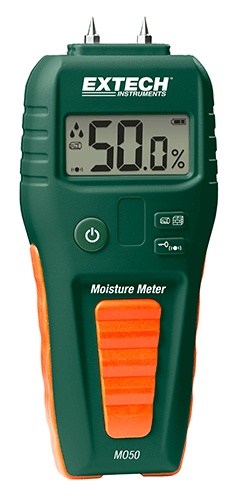Exactly How a Moisture Meter Can Help You Preserve Optimum Conditions in Your Home or Workplace
Exactly How a Moisture Meter Can Help You Preserve Optimum Conditions in Your Home or Workplace
Blog Article
The Ultimate Overview to Dampness Meters: A Comprehensive Review and How They Can Save You Cash
In the realm of building maintenance, building, and different sectors, the significance of precisely determining moisture levels can not be overemphasized. Moisture meters function as essential tools in discovering and monitoring moisture content in materials, aiding in avoiding expensive damages and making certain the high quality of products. Recognizing the nuances of different kinds of moisture meters, their applications, and the possible cost-saving advantages they offer can be a game-changer for businesses and experts alike. Discovering how these devices can not only streamline processes but also contribute to financial savings is a journey worth getting started on.
Sorts Of Dampness Meters
Various kinds of dampness meters are readily available for different applications in various markets. One typical type is the pin-type wetness meter, which gauges the electric resistance in between two pins put right into a product. This type is ideal for timber, drywall, and various other structure products. Pinless wetness meters, on the other hand, usage electromagnetic sensing unit plates to scan a larger area without creating damage to the product's surface. Moisture Meter. These meters are excellent for rapidly examining wetness degrees in big areas such as wall surfaces and floorings.

Infrared wetness meters gauge the thermal residential properties of a material to identify its wetness material non-invasively, making them beneficial for applications where pin or pinless meters may not be appropriate. Understanding the different types of moisture meters available can help industries select the most suitable device for their particular moisture dimension demands.

Advantages of Utilizing Wetness Meters
Wetness meters supply invaluable advantages in accurately assessing and keeping an eye on moisture levels in varied products and environments. One of the primary advantages of making use of dampness meters is the avoidance of potential damage created by excess moisture.
Moreover, utilizing moisture meters can cause boosted power efficiency. By recognizing areas with high dampness degrees, such as leakages or bad insulation, adjustments can be made to enhance power conservation and lower energy expenses. In agricultural setups, dampness meters play an essential function in enhancing plant returns by allowing farmers to keep track of dirt dampness levels and make informed watering choices. In general, the advantages of making use of moisture meters cover across various markets, offering affordable options and advertising much better quality assurance practices.
Exactly How to Choose the Right Moisture Meter
When choosing a wetness meter, it's necessary to ensure that the meter is appropriate for the specific product you will certainly be screening. Various products have varying electric buildings that can impact dampness analyses, so picking a meter made for your product is vital for exact outcomes. By thoroughly evaluating these elements, you can select a moisture meter that fulfills your requirements and provides exact dampness dimensions for your jobs.
Proper Methods for Dampness Meter Usage

Expense Financial Savings Through Moisture Meter Applications
How can the strategic application of wetness meters cause considerable price financial savings across numerous markets? Wetness meters play a critical duty in price financial savings by stopping prospective damages and ensuring top quality control in different markets. In the farming market, wetness meters aid in establishing the optimum time for collecting crops, stopping excess or over-drying wetness that can impact the end product's high quality. This precise monitoring aids farmers stay clear of unneeded losses and maximize their return.
Similarly, in building, dampness meters help prevent pricey damages by spotting dampness levels in structure materials, such as timber or concrete, which can lead to structural problems if not resolved quickly. By determining issue areas at an early stage, service providers can take corrective steps to avoid substantial repair work or substitutes, eventually saving money and time.
In addition, in the food handling sector, moisture meters are essential for monitoring item quality and making certain compliance with safety and security regulations. By precisely measuring moisture web content in foodstuff, suppliers can avoid wasting, keep quality, and reduce waste, resulting in significant expense savings. On the whole, the calculated application of dampness meters is a beneficial financial investment that can cause considerable price reductions and boosted performance throughout numerous industries.
Final Thought
In conclusion, wetness meters are important devices for discovering and determining dampness levels in various materials. By making use of the ideal moisture meter and complying with appropriate methods, customers can properly avoid costly problems caused by excess dampness. Spending in a quality moisture meter can result in substantial price savings over time by recognizing prospective problems beforehand and enabling timely remediation. Ultimately, wetness meters are vital tools for keeping the stability and long life of frameworks and products.
Dampness meters serve as essential devices in discovering and keeping track of moisture material in products, assisting in preventing expensive problems and making certain the high quality of items. Infrared dampness meters determine the check thermal residential or commercial properties of a material to identify its dampness material non-invasively, making them valuable for applications where pin or pinless meters might not be appropriate.Wetness meters provide invaluable advantages in accurately this page keeping track of and analyzing moisture levels in varied products and settings. In agricultural setups, moisture meters play a critical role in maximizing plant yields by allowing farmers to keep track of soil dampness levels and make notified irrigation decisions.In verdict, moisture meters are important devices for measuring and finding dampness degrees in various materials.
Report this page